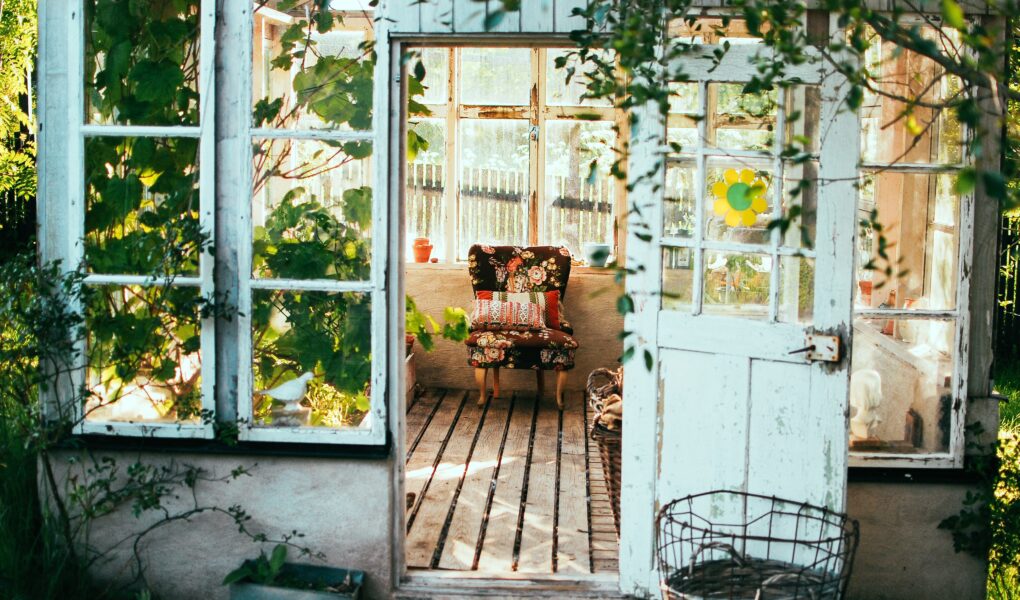Contents
Green living is not just a trending concept but a step toward a healthy lifestyle. By embracing sustainability, you can do your bit for the environment, lower your carbon footprint, and reduce energy bills. The best thing about the mindset is that you can adopt it in everything you do, from the way you cook, commute, and create a thriving outdoor space.
According to the latest stats, the US ranked 24th in the 2020 Environmental Performance Index. It means the country still has a long way to go with sustainability. Every American needs to contribute in every way possible to reach the top position. Why not start by creating a green outdoor space in your home? With more than half of American homes having gardens, it seems a great thing to do.
That’s a brilliant idea, but only if you skip using tons of chemicals, gallons of water, and other wasteful practices to grow your garden. While gardening without the basics sounds challenging, it is easier than you imagine. You have inspiring reasons to embrace sustainability because it boosts your health and saves money.
Let us share a few proven eco-friendly gardening best practices for a healthy outdoor and indoor space.
Skip Chemicals and Go Organic
Sustainable gardening starts with skipping chemicals and opting for organic solutions. Using fewer chemicals such as pesticides, herbicides, and fertilizers is ecologically sound and cost-effective. Most importantly, it is great for your health as a gardener because chemical products are loaded with disease-causing toxins.
According to a WHO report, glyphosate is a gardening chemical linked with a high risk of cancer. It is a key ingredient in Roundup, a widely used chemical weed killer in the US. The growing awareness is not the only reason to skip this toxic product. The legal action in the form of a Roundup lawsuit against the manufacturer also shows that the threat is real.
According to TorHoerman Law, agriculturists and gardeners exposed to Roundup regularly and diagnosed with cancer or non-Hodgkin’s lymphoma may qualify to file a lawsuit for compensation. Victims need to provide valid evidence linking their medical condition with the product. A qualified lawyer is the best person to help.
Plant Natives
Did you know that the choice of plants for your garden can contribute to sustainability? Native plants make the best options because they require less water and thrive better because the local soil types, climate, and rainfall are ideal for them. It means you can achieve more with less backbreaking gardening work.
Native plant species are also great for providing food and shelter for the bird and insect populations in your area. You can build a beautiful green outdoor space with the best of natural elements with minimal effort and investment.
Minimize Water Wastage
Water wastage is a pressing concern in the country, with estimates indicating that each American uses 82 gallons of water daily on average. Conserving water is the key to sustainability, and it is even more crucial if you live in an area where it is scarce.
You can experiment with gardening methods like Xeriscaping, which reduces the need for watering. With this technique, you grow attractive drought-tolerant shrubs and perennials rather than plants with extensive watering requirements. You can install a rain barrel at the base of downspouts to collect water for future use.
Grow Your Own Food
Planting a sustainable vegetable garden in your backyard is a surefire way to promote a healthy lifestyle. You can be sure about the health value of home-grown vegetables, fruits, and herbs because you know what you get. All you have to do is to use organic products to boost growth and prevent weeds and pests.
The best thing about growing seasonal greens and fruits is that they give you a valid reason to eat healthy and avoid processed foods at home. You may need to invest time and effort in cultivating food crops, but the results are worthwhile.
Start Composting
Composting your green and brown waste is one of the best ways to partake in eco-friendly best practices. Gather grass clippings, dried leaves, and dead-headed flowers from your outdoor space, and compost them to produce a nutrient-rich sustainable fertilizer.
With composting, you get more than an organic replacement for chemical fertilizers. You take the initiative to create a clean and healthy garden to rest and relax with your loved ones. That’s great for your mental health.
Wrapping Up
Gardening is a proven self-care strategy, but you can take the extra mile by adopting these sustainable best practices. These actionable tips do not require a hefty investment or gardening expertise. They can help you save money and boost the health of your home and family.




